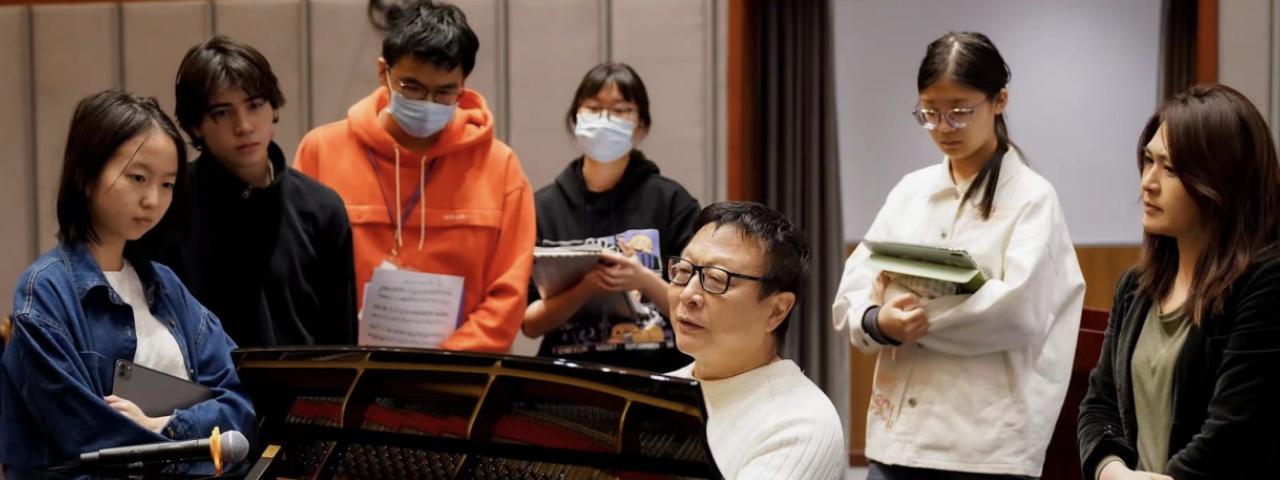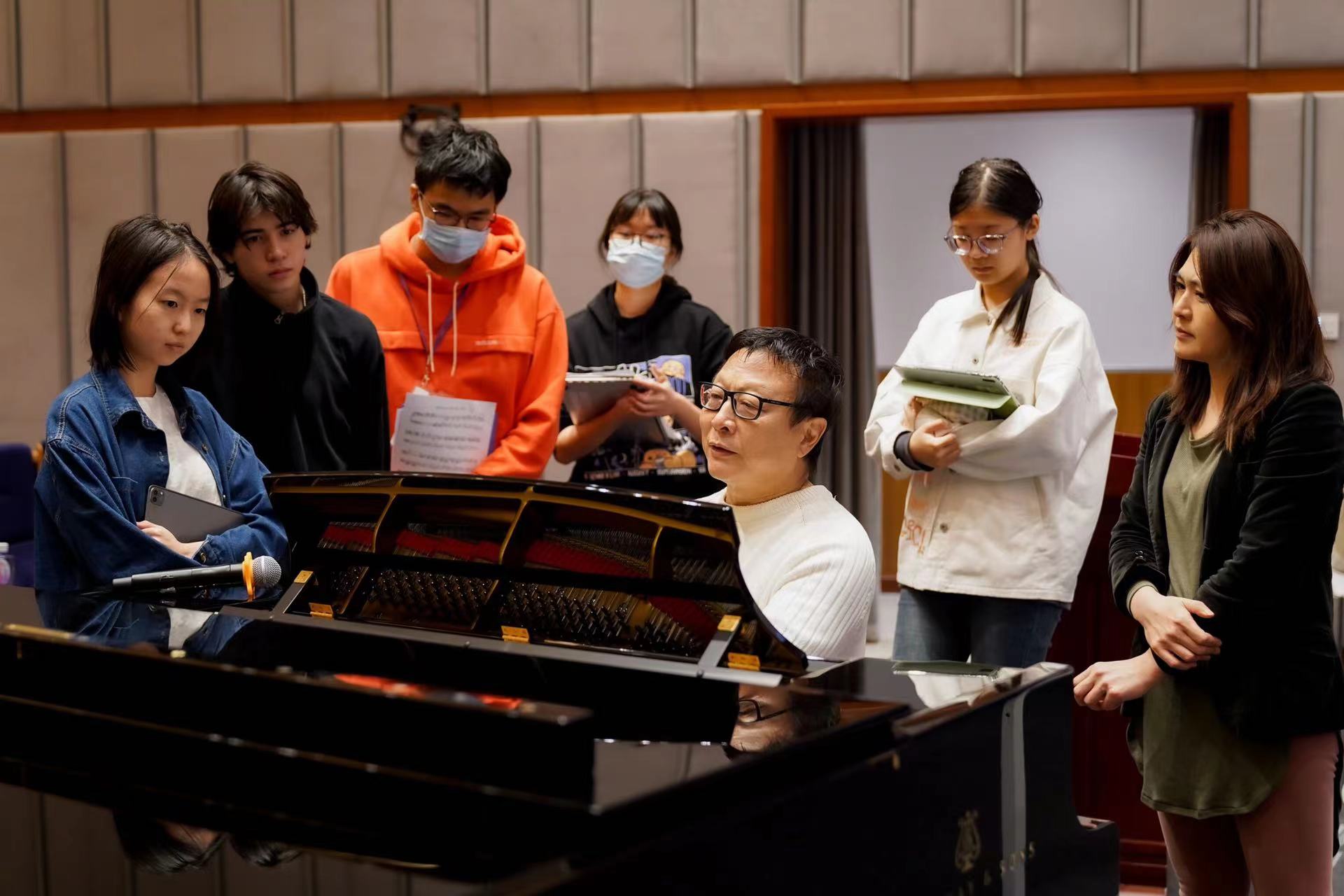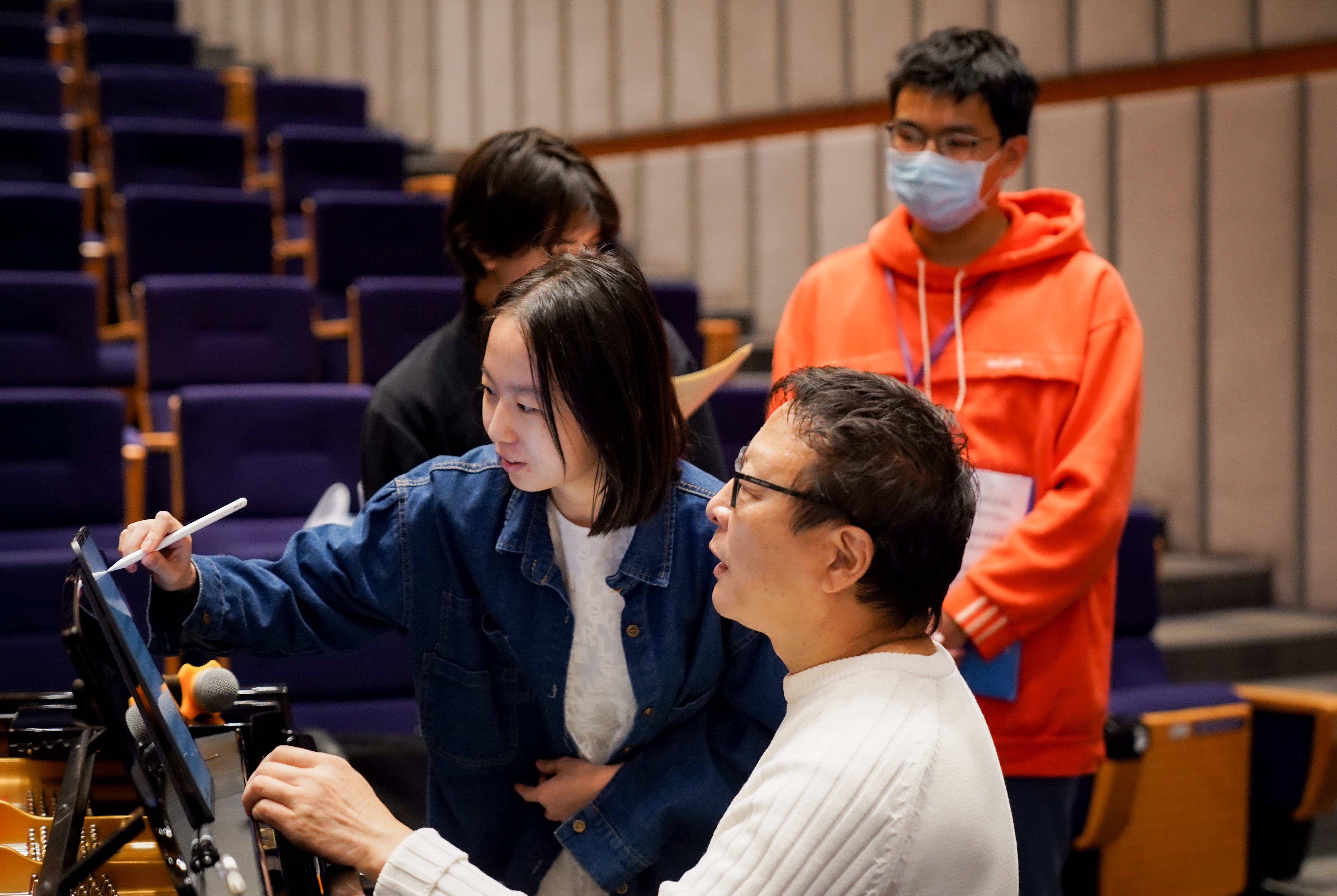
Once a week, award-winning composer Bright Sheng sits at the piano for ninety minutes. Rather than playing one of the many original scores that have won him international acclaim and a MacArthur Fellowship, Sheng instead performs the compositions of NYU Shanghai students and offers them individualized feedback. This is one of the highlights of a course Sheng is teaching at NYU Shanghai during the fall semester: The Art of Music Composition and Performance.
“Keep this motif going,” he advises one student, referring to a bright and catchy riff.
“See, he repeats! This is good,” he says to the class, in praise of another student’s composition.
 Students gather around Sheng at the piano to go over their compositions.
Students gather around Sheng at the piano to go over their compositions.
Sheng joined NYU Shanghai this fall as a visiting professor of music and composition and Distinguished Artist-in-Residence for the 2022-23 academic year.
Sheng, a Shanghai native who left China forty years ago, said he was excited to teach in his home city. “NYU Shanghai is one of the best, if not the best, foreign institutes with branches in China,” he said. “The way they handle their curriculum, students, and goals is very inspiring.”
Sheng, who volunteered to teach the course and designed it himself, said he envisioned it as an opportunity for students to gain exposure to creative thinking, regardless of previous musical experience.
“Creative thinking is crucial in every profession,” he said. “My objective is that anybody can take this class. If they have enthusiasm and passion, if they love music, and if they want to learn, then they will get something from the course.”
The open and inclusive nature of the class attracted Nora Liu ’23, who had a long-standing interest in music and composition but no professional training. “I mainly played pop songs or music from movies on the piano in my free time, and learned by myself,” Liu said. “When I found out that our school was offering the music composition class, I was thrilled.”
Liu is working on her own composition that she says is inspired by the soft, flowy sound of Latin jazz. She has also been improving her vocal skills thanks to the performance aspect of the course.
“I always wanted to sing, but I never had a chance to train or actually perform,” Liu said. “This course provided me the opportunity to do both.”
 Sheng and Nora Liu ’23 working on her original composition for the class.
Sheng and Nora Liu ’23 working on her original composition for the class.
Jinyuan Hu ’25 joined the course because of his admiration for composers, especially those in the progressive rock genre. “I wanted to figure out how those talented musicians create such delicate music,” Hu said. In the class, Hu has learned musical terms and listened to pieces by famous composers. “Professor Sheng’s analysis on them has helped me understand the basic logic of music and music composition,” he said.
The pieces that Sheng introduces to the students vary greatly in terms of style. In one recent class, he walked students through Igor Stravinsky’s The Rite of Spring, an orchestral concert rooted in Russian folk songs; Giacomo Puccini’s Turandot, an opera with influences from traditional Chinese music; and Edgard Varèse’s Density 21.5, an experimental flute solo. Sheng expounded on each piece to offer his students a lesson or piece of advice related to composing.
After sharing The Rite of Spring with the students, Sheng advised the students on their own works. “We all want to write a tune which, after people hear it, they can hum,” he said.“A great tune is memorable. You can hear it.”
Sheng’s teaching style has resonated with the students. “Professor Sheng taught us rules that you can follow—because the musicians before us have found these rules—to make music sound more fluent, more melodic,” said Liu. “This improved my understanding of music because it provided a structure.”
At the end of the semester, students will perform their completed compositions in a public concert.

